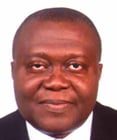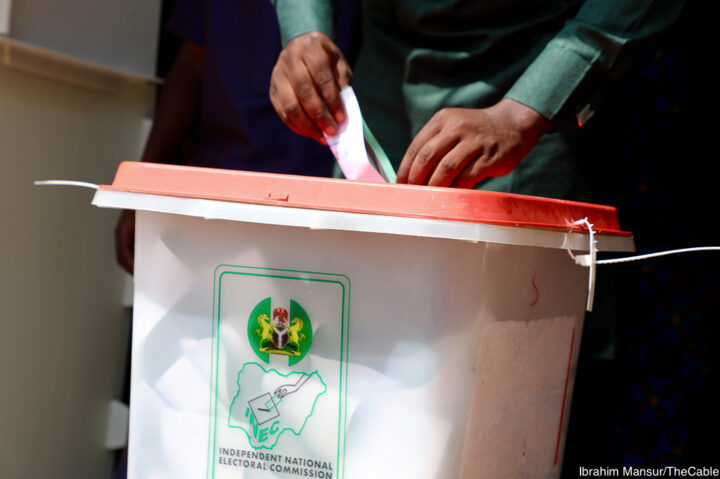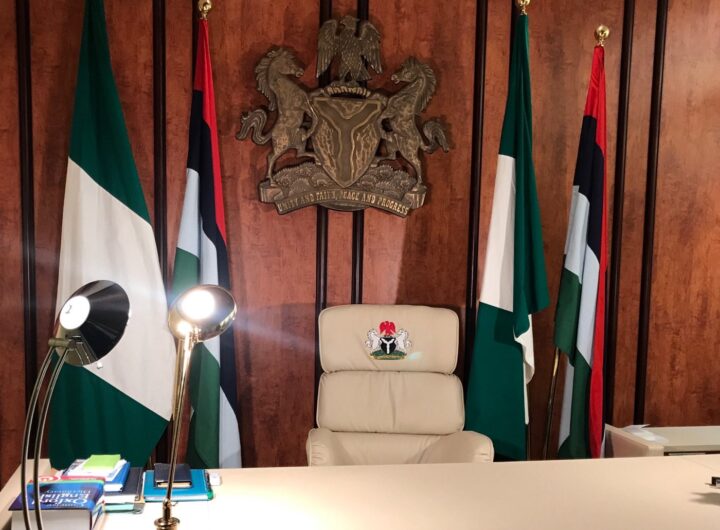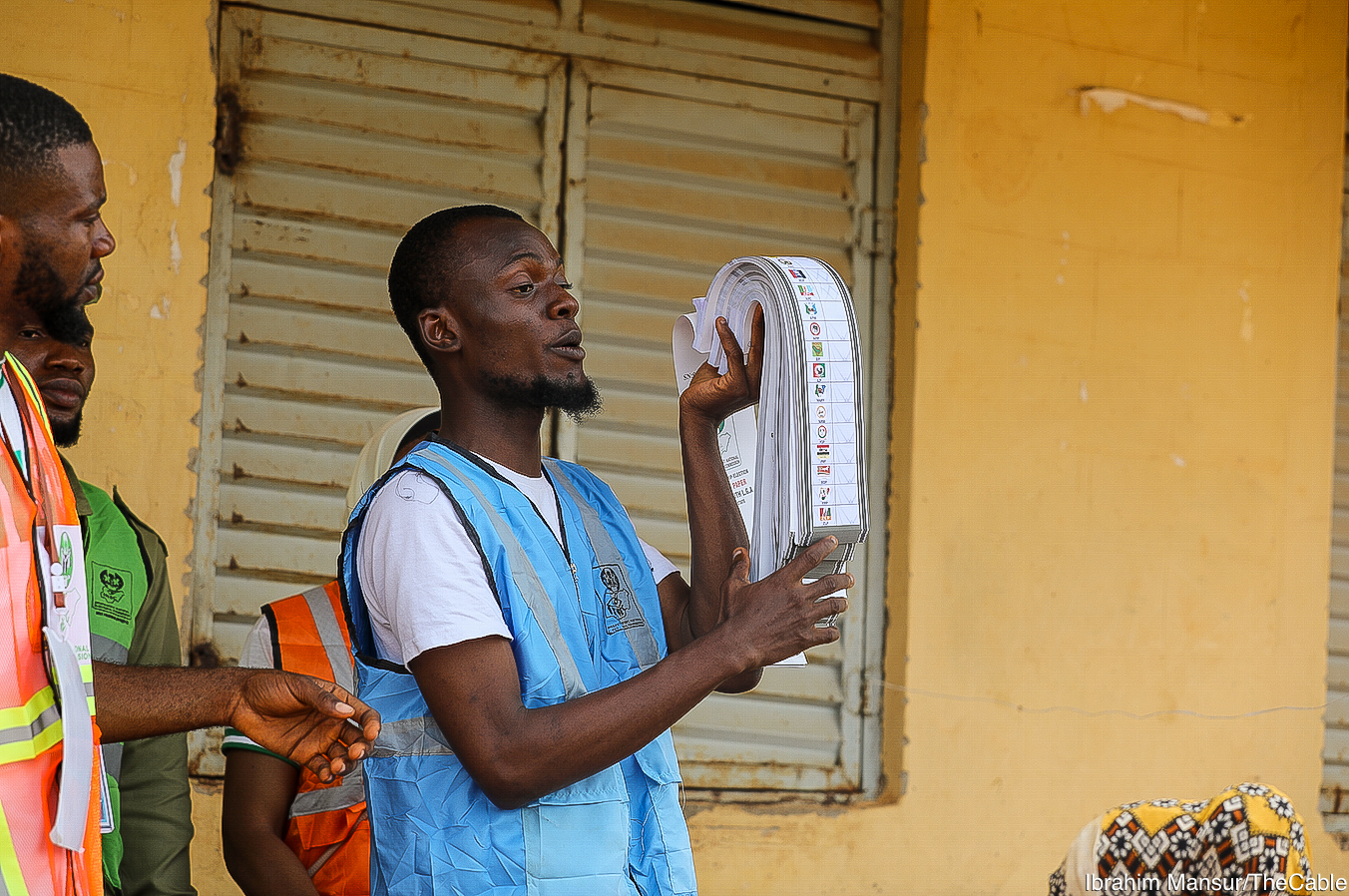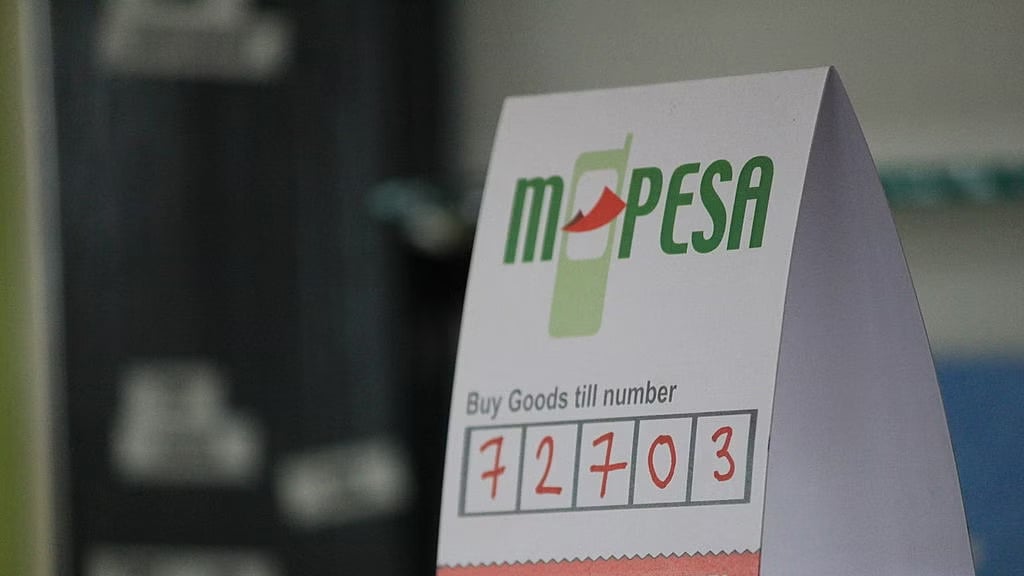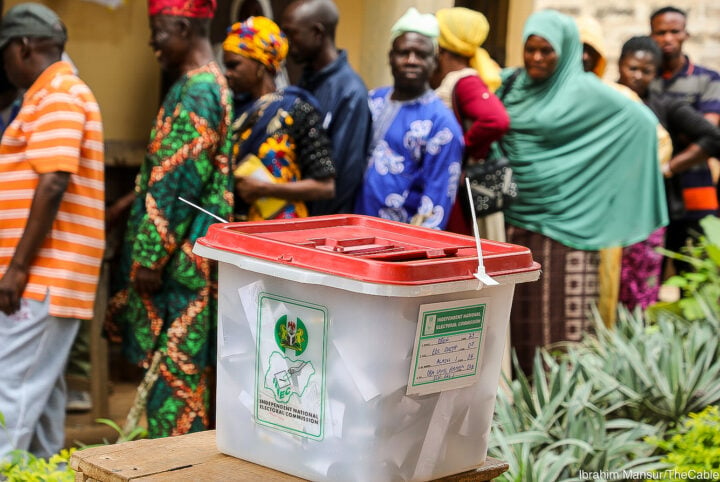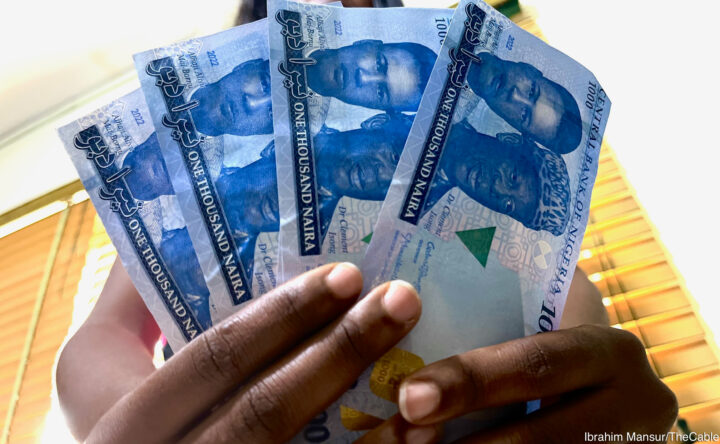It is gratifying to note that the Independent National Electoral Commission (INEC) has assured Nigerians that the general elections will go ahead as scheduled despite the cash crunch and nationwide protests. Initially, Mahmood Yakubu, the INEC chairman, expressed doubts due to the avoidable pains inflicted on Nigerians by unconscionable government officials days leading to the election.
The general election to elect the president, vice president and members of the senate and house of representatives will be held next Saturday, February 25. Two weeks later on March 11, elections into governorship positions and state houses of assembly will follow.
Threats to the elections holding this weekend had become imminent and sabotage was suspected.
Since last year, petrol has been scarce and expensive – that is when you find it. As if that was not bad enough, the convoluted naira swap policy masterminded by Godwin Emefiele, the Central Bank of Nigeria (CBN) governor, failed woefully. I don’t know whether Nigerians will ever forgive Uncle Meffy.
Advertisement
Up till now, new notes are still not available.
With a petrol subsidy of over N4 trillion in the 2023 national budget, is it not surprising that we are still experiencing supply issues at exorbitant rates? This will not be the first time Nigerians camp at filling stations in search of petrol. Meanwhile, there are usually no consequences – no one gets fired and resilient Nigerians bear the brunt of poor policy implementation.
We are just unlucky to have incompetent public officers who are shielded by their enablers and sponsors. The result is that there is a black market for petrol and new naira notes – in addition to the existing black market for foreign currencies. How low can we go?
Advertisement
Despite these challenges, we should not be deterred. We cannot give up on Nigeria because we do not have any other country to call our own. Only Nigerians can fix Nigeria, the most populous black nation in the world.
With a population of over 210 million people and still counting, our economy is the largest in Africa. That’s good news and shouldn’t it count for something? By 2050, it is being projected that Nigeria will be the third most populous nation in the world – after China and India.
The general elections present an opportunity for us to vote for our preferred candidates in spite of missed opportunities in the past and ensure that our votes count. Let us seize the opportunity with both hands because this is Africa’s biggest election. The whole world is watching and we must protect our democracy.
“My people perish for lack of knowledge/vision” is a popular scripture in the Holy Book (Hosea 4:6). Lack of knowledge refers to ignorance, poor education and inability to craft a vision.
Advertisement
Nigerians are only asking for visionary leaders that are exemplary in character, capacity, competence, performance records, and selfless service. Such leaders should be able to lead from the front and point the way forward to greatness because they constantly seek knowledge and understanding.
For example, a visionary leader should be able to dig up what “shared values” mean. In its simplest form, these are a set of values that would serve as “glue” to hold Nigerians together at all times – something similar to “Wa-zo-bia” (in form and expression) which means “come” in the Yoruba, Hausa and Igbo languages respectively.
An identity problem has always existed which explains why we do trust each other outside our tribal territories. A national, indigenous language – outside English and Pidgin – may unite us more.
We can draw from the existing national values to forge a national identity project where the state of residence, for example, is better than the state of origin. When Tobi Amusan won the gold medal the other day at the world athletics event, Nigerians celebrated her, not minding whether she was Yoruba, Igbo or Hausa. In fact, not many people knew she hails from Ondo state; it was the Nigerian brand that the media highlighted.
Advertisement
It is the same thing each time the Super Eagles of Nigeria are on the football pitch – we forget where we come from. Suddenly, the Nigerian spirit comes alive and creates a bonding effect.
These values must reflect who we are because we cannot run away from issues such as religion and ethnicity but our diversity will stand out as a key component. The fear of domination by minority groups will always be there but justice, equity/equality and fairness will create a level playing field for all – regardless of religion and tribe.
Advertisement
This is a project that the National Orientation Agency (NOA) with its presence in all the 774 local councils ought to champion but there has been no such initiative in the past – to the best of my knowledge – much less implementation. If one exists, no one knows about it.
When will NOA wake up from its slumber? It is rather unfortunate that this agency – devoid of any innovative ideas – winks in the dark 24/7.
Advertisement
Nigerians also need leaders that can make their lives better – it does not matter where the person comes from. Once in Aso Villa, the next president should command respect on the one hand, and be trusted on the other. Nigerians forgive easily but I think the times are changing in a world full of uncertainties.
It is a pity our diasporan brothers and sisters cannot vote – a situation the Electoral Act 2022 should have addressed. However, they can participate actively by mobilising their family members and friends to vote wisely all the time – from councillorship positions to who their governors and legislators should be. No one should sit on the fence.
Advertisement
Since 1999, our rapacious and selfish political elite come and go through the revolving door of shame every election cycle. They should be voted out but be careful who you vote in as replacements. The risk is worth taking if you ask me.
INEC says we have 93.5 million eligible voters and these voters with their PVCs have the power to make a difference as they determine those that can lead us in the upcoming elections. Voter apathy will be unhelpful because that is what used to happen.
Previous data indicate that only 35.6% of the 84 million registered voters took part in the presidential and national assembly elections four years ago. It has to be different this time. All eligible voters should turn out massively to cast their votes and have a say on who our next set of leaders should be.
If we can achieve between 60% and 75 % or more of the voting population aided by the use of BVAS and electronic transmission of results, the outcome will reflect the will of the people, while allowing for a margin of error of not more than 5% – plus or minus.
About 60% of Nigeria’s population is under 25 years old. Again, shouldn’t this count for something? The young voting population – the millennials – can swing this election in the direction they want.
In the updated register of voters, INEC disclosed that 9,518,188 new voters were added to the existing register of 84,004.084 voters. That’s how we arrived at 93,522,272 eligible voters.
When you break these numbers down further, INEC explained that in terms of demographic distribution, 7.2 million new voters or 76.5% are young people between 18 – 34 years while there’s a slightly higher number of females (4.8 million or 50.82%) than male (4.6 million or 49.18%) voters.
In terms of occupation, 3.8 million voters (40.8%) are students. Who will bribe these young voters when their future is at stake in the coming election? At this time, I’m not too sure we still have undecided voters but the voting pattern is likely to change.
What is remarkable about the updated register is that 37,060,399 or 39.35% of voters are between the ages of 18 and 24, while 33,423,591 or 35.75% are middle-aged persons between the ages of 35 and 49. That is over 70 million voters out of 93.5 million registered voters are below 50 years old!
Lagos (7,075,192), Kano (5,927,565), Kaduna (4,345,469), Rivers (3,532,990), Katsina (3,519,260) and Oyo (3,275,045) states have the highest number of registered voters as indicated.
The north-west geo-political zone comprising seven states of Kano, Katsina, Kaduna, Kebbi, Sokoto, Zamfara and Jigawa has 22.27 million – the highest number of registered voters among the six geo-political regions.
The south-west (Lagos, Ogun, Ondo, Ekiti, Oyo and Osun states) has 19.93 million voters while the south-south (Akwa-Ibom, Rivers, Cross-River, Bayelsa, Edo and Delta states) has 14.4 million voters. The north-central (Nasarawa, Kogi, Benue, Niger, Kwara, and Plateau states) has 13.8 million voters.
In the north-east zone (Yobe, Borno, Taraba, Adamawa, Bauchi and Gombe states), the voting strength is 12.5 million voters. The south-east which has Ebonyi, Enugu, Abia, Anambra and Imo states has a total of 10.9 million voters while the federal capital territory has 1.5 million voters in the updated register.
What is significant about these numbers? If you look closely, several factors will affect the voting pattern but the number of voters that turn out is crucial – assuming that there is no violence or postponements in any state/region.
Votes from every geo-political zone are important but the three leading presidential candidates – Asiwaju Bola Ahmed Tinubu of the All Progressives Congress (APC): Alhaji Atiku Abubakar of the People’s Democratic Party (PDP) and Peter Obi of the Labour Party (LP) – will lead in their respective catchment areas because of tribe and/or religion.
Who will receive the highest number of votes in the top six states? Look closely and do the maths. Do the same analysis and make your deductions in the north-west zone with the highest number of voters (22.27 million).
Use your lens to also peep into the remaining five geo-political regions and you will see that the race will be too close to call in some of them. In fact, a pattern will emerge if you have been following the campaigns, discussions, debates, media spotlights, social media forums, town hall and stakeholder meetings in the last six months.
Apart from what looked like apparent alliances that were being forged at the last minute, the political capital of Asiwaju Tinubu and Alhaji Atiku and the surging popularity of Peter Obi will split the votes in three ways – it has never happened like this before.
This may produce the highly anticipated presidential run-off – when there’s no outright winner in the first ballot.
Since Nigerians are at their wit’s end suffering all forms of deprivations, the voting pattern will also be influenced by the candidate they think can make their lives better through purposeful leadership.
Who can they trust with their votes on everyday issues – not campaign promises – that are on the front burner: weak economy (huge debt profile, slow growth rate, expensive forex, revenue challenges, galloping inflation, etc), unemployment, devolution of power (state police, etc), insecurity, corruption and high cost of governance, poor infrastructure and so on.
Finally, it is instructive to repeat that the young and middle-aged voting population of about 51% of INEC data – depending on how they vote – could produce an outright winner, but we should not foreclose the impact of the battleground states in the north-central zone with 13.8 million voters.
Young voters and millennials have been very active on social media but they should come out and vote otherwise nothing will change.
On the ballot on Saturday are 18 presidential candidates, 1,101 contestants in the senate and 3,122 vying for seats in the house of representatives. No do-or-die politics, please.
The die is cast as we look forward to a credible, free and fair election. The security agencies must play their part as well for a hitch-free polling exercise in over 176,000 polling units nationwide.
In all that we do, let us put Nigeria first because there’s no place like home.
Braimah is a public relations strategist and publisher/editor-in-chief of Naija Times (https://ntm.ng)
Views expressed by contributors are strictly personal and not of TheCable.
Add a comment
